Weeds are a nuisance for your grass, stealing nutrients for themselves and dragging down its curb appeal. There are six common weeds to look out for on your lawn in Pennsylvania: dandelions, clover, crabgrass, nutsedge, wild violet, and ground ivy. Each has distinguishing characteristics, but all cause problems if left untreated. So, you'll want to utilize pre- and post-emergent weed control treatments to tackle these weeds. Pre-emergents prevent them from sprouting above the surface, while post-emergents eliminate any that have already surfaced. By using both treatments, you can keep your lawn free of these pesky nutrient thieves!
Common Lawn Weeds in Pennsylvania
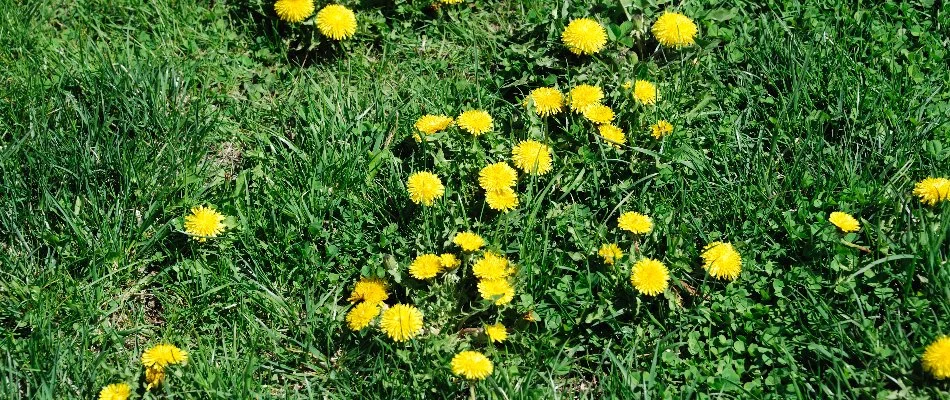
Weeds are no stranger to lawns in Pennsylvania, and some of the most common ones include:
- Dandelions: Dandelions are one of the most well-known perennial weeds, with yellow flowers at the end of stalks. Their leaves have toothed edges, which grow in a cluster at the base. Dandelions spread through taproots and seeds, which is when they showcase their notorious white, cotton ball-like head.
- Clover: Clover is a low-growing perennial that forms patches of trifoliate leaves across your turf. It also sprouts small, white flowers during the warmer weather in late spring/early summer. Clover spreads through seeds and stolons.
- Crabgrass: Crabgrass is a familiar annual weed that grows long, coarse, light green leaves that branch out from the center and resemble crab legs, hence the name. It spreads rapidly through seeds, with a single plant producing as much as 150,000!
- Nutsedge: Nutsedge is a perennial weed that resembles desirable grass, though its stems form a V-shape and are round. Its leaves also stand stiffer and are thicker. Nutsedge is an aggressive spreader, as it does so through seeds, nutlets, and rhizomes.
- Ground Ivy: Ground ivy is a perennial that grows low to the ground, forming dense mats across your lawn with scalloped leaves opposite each other on the stem. It also produces small, purple-blue, tubular flowers and has a minty smell when crushed. This weed is highly challenging to control, spreading through seeds, rhizomes, and stems that creep along the ground.
- Wild Violet: Wild violet is a low-growing weed with heart-shaped leaves and purple or blue flowers with five petals. This weed quickly spreads through seeds and rhizomes, making it difficult to manage.
What's the best way to tackle these weeds?
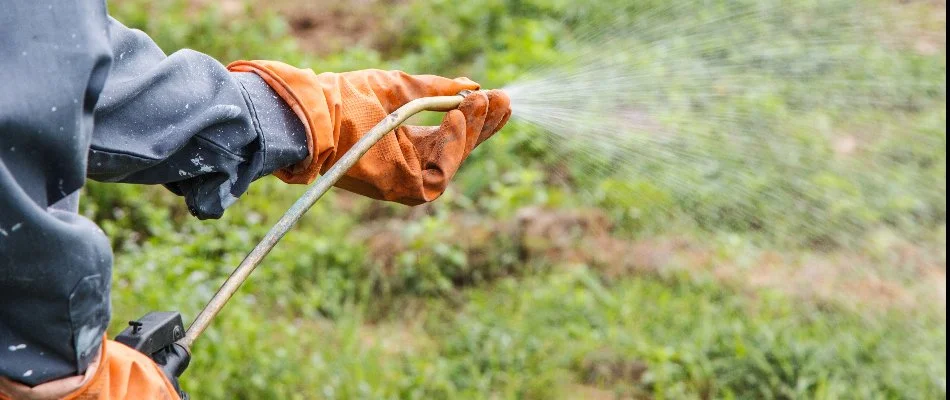
The best way to tackle weeds on your lawn in Pennsylvania is with pre- and post-emergent weed control treatments. Pre-emergents will help prevent weeds from sprouting above the surface by creating a barrier atop the soil that blocks them from accessing vital resources. Meanwhile, post-emergents target any existing growth, as they're applied directly onto it, where they'll then seep into the ground and kill it at its roots. Utilizing these treatments together provides a comprehensive approach to tackling weeds at both ends of their growth cycle and will effectively keep them off your lawn.
Want to keep your lawn free of weeds? Call us to sign up for our weed control service!
Do you want to keep your lawn free of weeds? If so, you've come to the right place! At Delaware Valley Turf, we offer a weed control service that includes pre- and post-emergent treatments to prevent weeds from sprouting and eliminate those that have surfaced. We'll apply our pre-emergents twice in the spring, then utilize post-emergents throughout the growing season to actively control these pesky nutrient thieves. What's more, our treatments are effective against all kinds of weeds, including dandelions, clover, crabgrass, nutsedge, ground ivy, and wild violet, among others!
We proudly serve property owners in Newark, DE, and surrounding areas in Pennsylvania, like Doylestown and Blue Bell. Call us today at (610) 328-4170 to sign up for our weed control service!

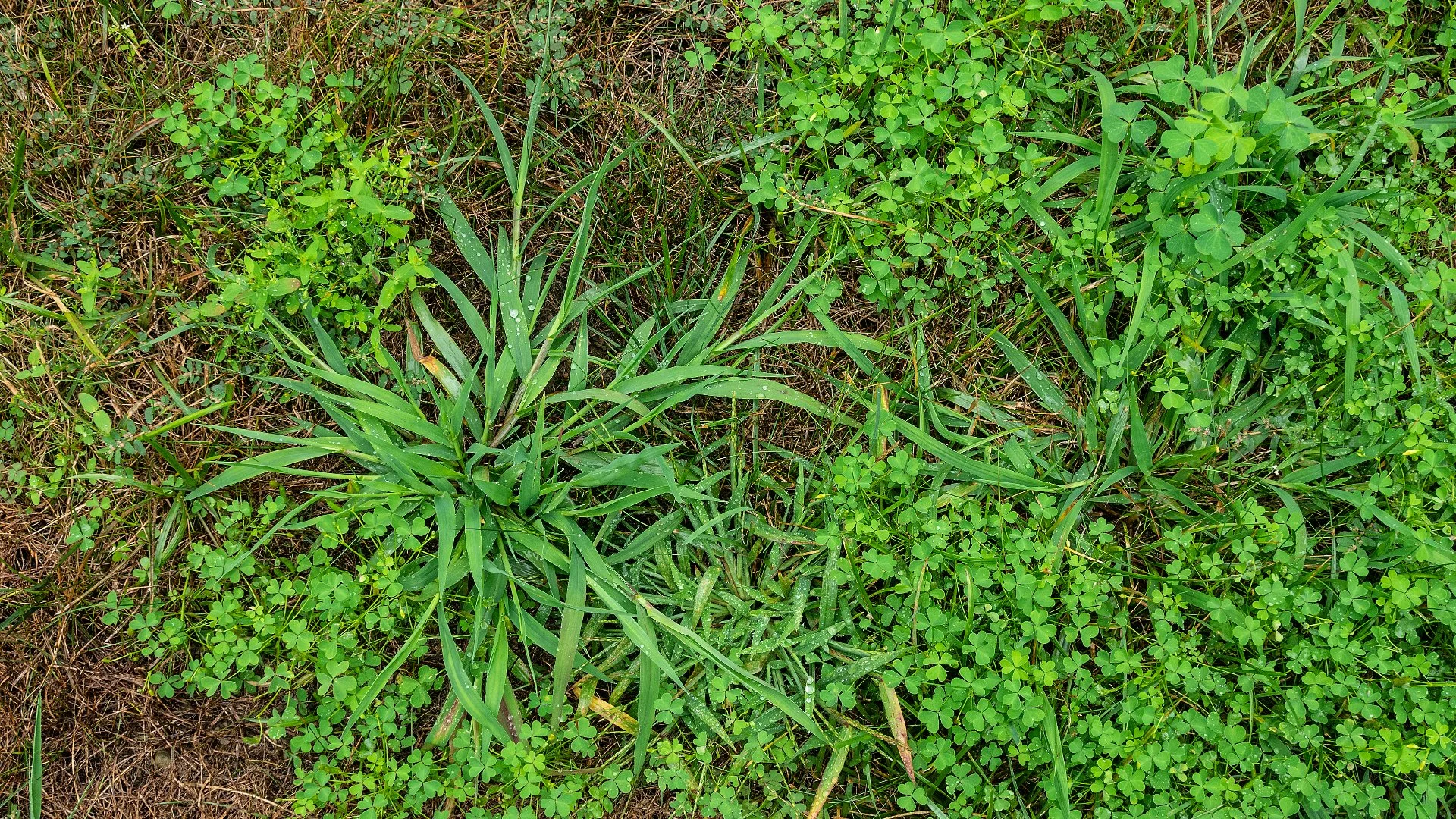

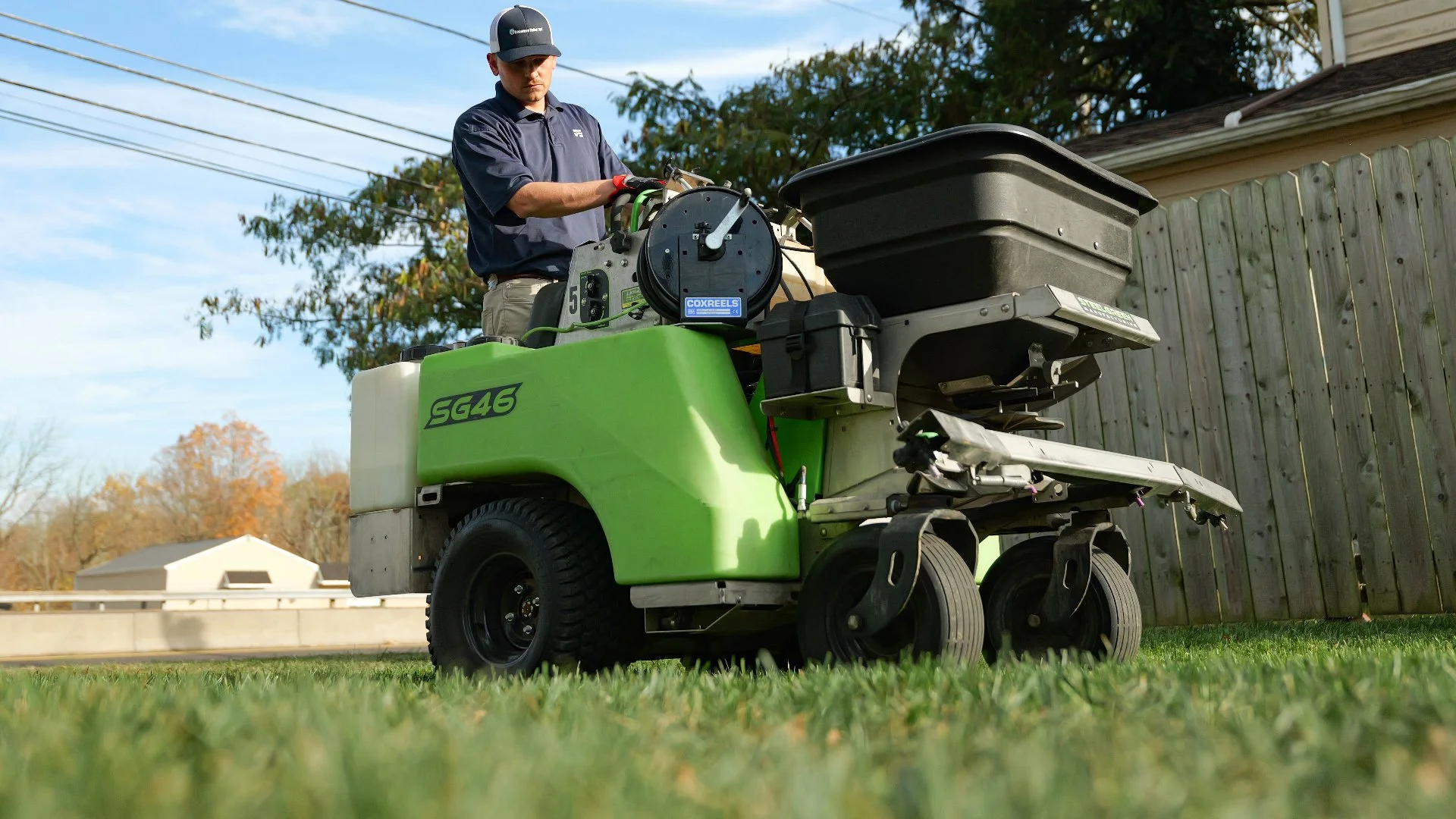
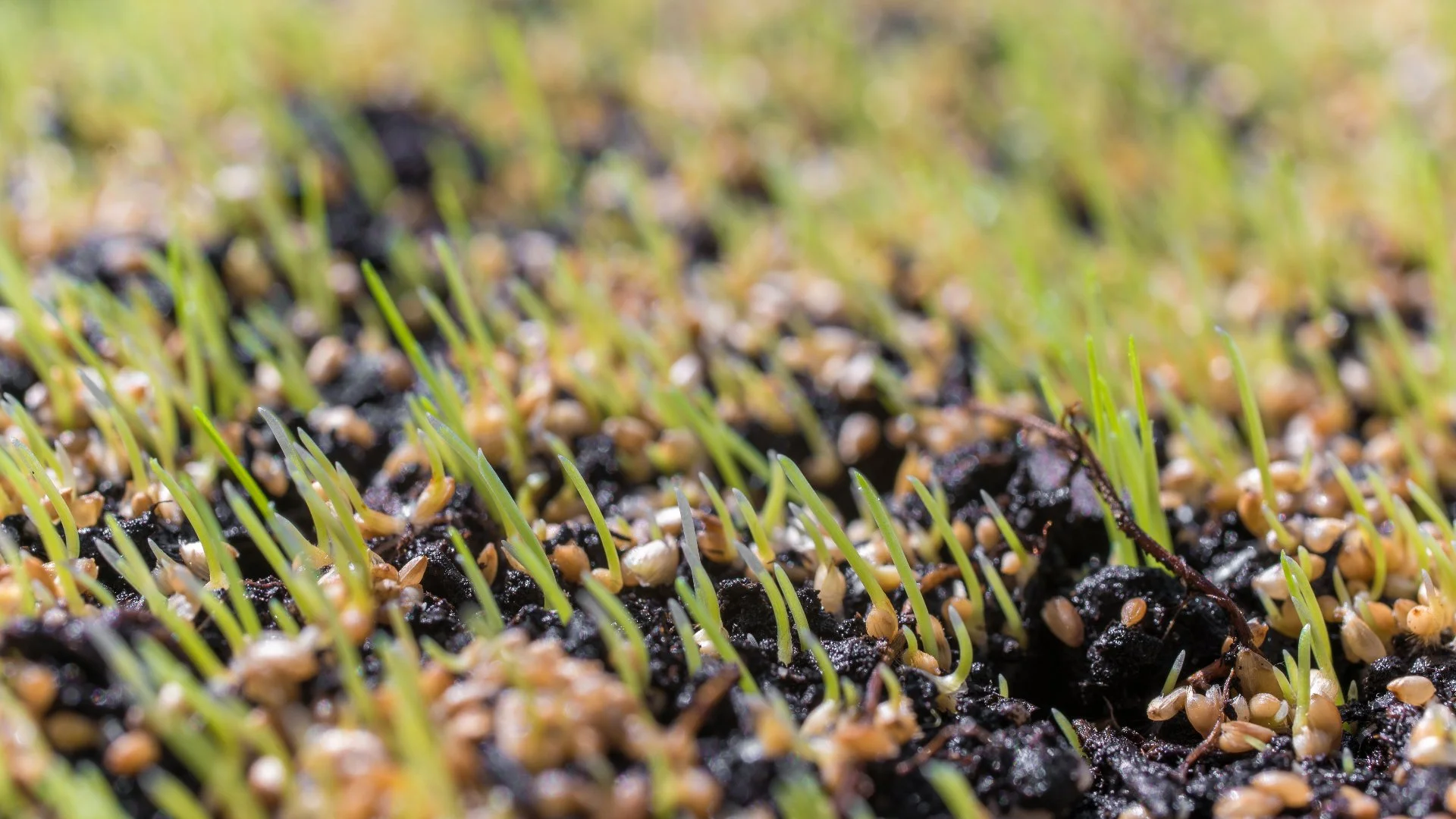

Comments (0)
Thanks for your comment!
Thanks for your feedback! Your comments have been successfully submitted! Please note, all comments require admin approval prior to display.
Error submitting comment!
There is a problem with your comment, please see below and try again.